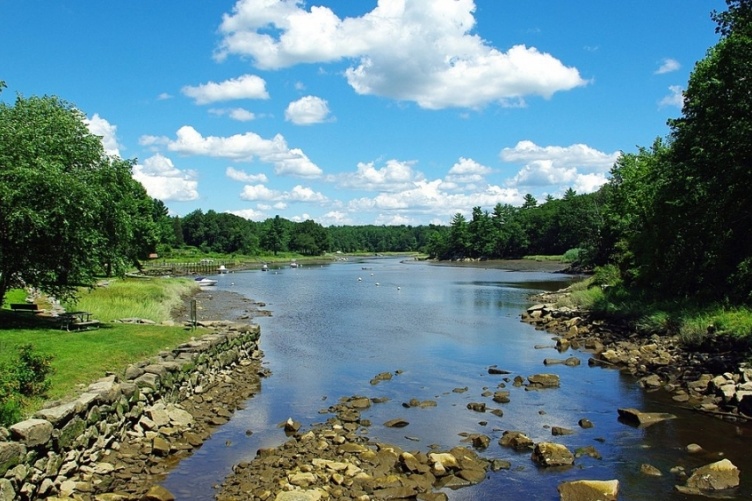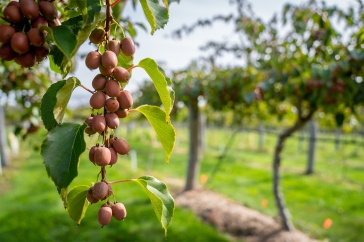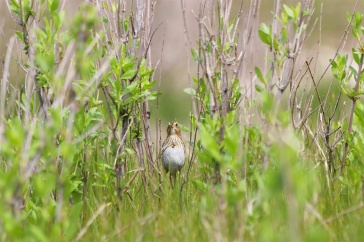
The Oyster River in Durham, NH. (Credit: AcrossTheAtlantic, Creative Commons License.)
 Are rivers the livers of watersheds? Should farmers plant cider apples to thwart pests in orchards? Come find out from scientists with the NH Agricultural Experiment Station at the University of New Hampshire, who will present their latest research at the 2020 New Hampshire Farm, Forest, and Garden Expo.
Are rivers the livers of watersheds? Should farmers plant cider apples to thwart pests in orchards? Come find out from scientists with the NH Agricultural Experiment Station at the University of New Hampshire, who will present their latest research at the 2020 New Hampshire Farm, Forest, and Garden Expo.
Scientists will discuss these research projects Friday, Feb. 14, 2020, at the expo’s education sessions held at the DoubleTree by Hilton in Manchester. They are free and open to the public.
Wilfred Wollheim, associate professor of natural resources and the environment, will present “Are Rivers the Livers of Watersheds? River Network Capacity to Remove Nutrient Pollution.” Freshwater ecosystems provide many ecosystem services, such as removing nutrients like nitrogen, from a watershed. Freshwaters remove nitrogen through a process called denitrification. Key factors in how successfully freshwaters remove nitrogen include where pollutants enter a river network, amount of water flow, water temperature, and biological activity. In addition, reservoirs and lakes enhance this process, which raises management decisions regarding removing dams. Wollheim will discuss these aspects of watershed management and how they need to be considered holistically at the watershed level.
Shadi Atallah, assistant professor of natural resources and the environment, will present “The Economics of Intercropping Cider and Commercial Apple Varieties for Protection Against Pests.” Intercropping cider apples with commercial apples can provide orchards with greater natural protection against pests such as the codling moth and the plum curculio through the natural chemical defenses in cider varieties. But cider apples have a lower market value than commercial apples for fresh consumption. Also, mixing varieties can increase management costs. Does it make economic sense for a farmer to have a mixed orchard for the sake of protection against pests? Is there an economically optimal mix that balances protection and profits?
For more information on the 2020 New Hampshire Farm, Forest, and Garden Expo, visit https://www.nhfarmandforestexpo.org/.
Founded in 1887, the NH Agricultural Experiment Station at the UNH College of Life Sciences and Agriculture is UNH’s original research center and an elemental component of New Hampshire's land-grant university heritage and mission. We steward federal and state funding, including support from the USDA National Institute of Food and Agriculture, to provide unbiased and objective research concerning diverse aspects of sustainable agriculture and foods, aquaculture, forest management, and related wildlife, natural resources and rural community topics. We maintain the Woodman and Kingman agronomy and horticultural research farms, the Macfarlane Research Greenhouses, the Fairchild Dairy Teaching and Research Center, and the Organic Dairy Research Farm. Additional properties also provide forage, forests and woodlands in direct support to research, teaching, and outreach.
-
Written By:
Lori Wright, '06G | NH Agricultural Experiment Station | lori.wright@unh.edu | 16038621452



















































